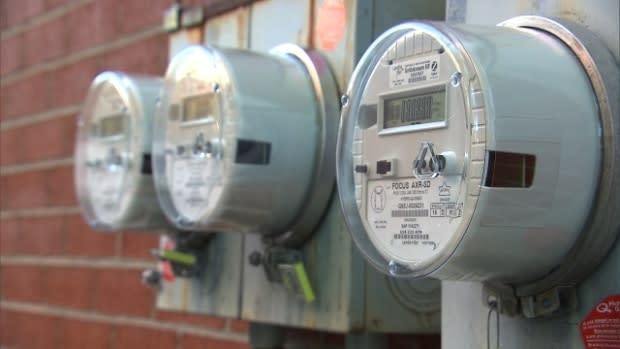NB Power rate used to justify smart meters 'low,' says expert
Questions about whether NB Power has padded the business case supporting its proposed purchase of smart meters continue to dog the utility at Energy and Utilities Board hearings.
A U.S. expert hired by NB Power to independently evaluate the reasonableness of its smart meter plan said he found a key interest rate input used by the utility to calculate costs of its project — known as a discount rate — to be "low"
"A lower discount rate will increase a positive result," said Erik Gilbert in explaining the significance of the issue
Gilbert, a Colorado-based energy consultant, testified at hearings into NB Power's smart meter plan Wednesday and Thursday and said the utility supplied his company with a discount rate of 5.25 per cent to calculate the interest cost of money that will be invested in the smart meter project.
The rate was below what was used by other utilities undertaking similar projects Gilbert investigated, but he said it was not unbelievably low and he assumed, wrongly, it was a rate generally used by NB Power in its other capital planning.
"Typically when we do one of these benefit cost analyses, we obtain this rate, directly from the utility finance folks," said Gilbert.
"And as long as that rate is being broadly used in say an IRP (integrated resource plan) or in other proceedings, long range planning and so on, then we consider it reasonable.".
EUB lawyer Ellen Desmond asked Gilbert if he had investigated why the rate was selected or if he looked into whether NB Power typically uses the 5.25 per cent rate. He hadn't.

"I did not personally review the IRP," he said
"Every utility has different discount rates and different factors. And so we didn't consider the 5.25 to be an outlier, it was just low."
NB Power's most recent integrated resource plan, which was updated in 2017 and is on file in a separate EUB matter, states the company generally uses a discount rate of 5.9 per cent "for all present value analysis."
Gilbert's own work showed that Nova Scotia Power recently used a discount rate of 6.96 per cent in its own smart meter application in 2017 and BC Hydro used a discount rate of eight per cent.

According to Gilbert's report every one per cent swing in the discount rate used in NB Power's smart meter plan would add or subtract about $7 million in net benefits, depending if it was moved higher or lower.
"It is important. It is an important factor yes," said Gilbert.
Although hired by NB Power, Gilbert said he was asked to evaluate the company's application, not support it, and he was free to criticize any faults he found.
He said overall he found the business case professional and reasonable and "on the balance" built using conservative assumptions.
"We were retained to do an independent and impartial review of NB Power's business case and their benefit cost analysis, and that is how I view the role," said Gilbert.

"To provide input to the Board, expert opinion to the Board, and the evidence that we have introduced as an impartial expert and to help the Board make an appropriate decision for New Brunswick."
NB Power has insisted from the start of hearings that it used conservative estimates and assumptions in building its business case that smart meters will generate a $31.1 million net benefit over 15 years.
But interveners, especially EUB lawyer Ellen Desmond, have been chipping away at that number.
In addition to questions about the discount rate, interveners earlier raised questions about $4.7 million in benefits NB Power has claimed in its business case will flow from replacing inefficient older meters that undercount electricity consumption with newer, more accurate smart meters.


